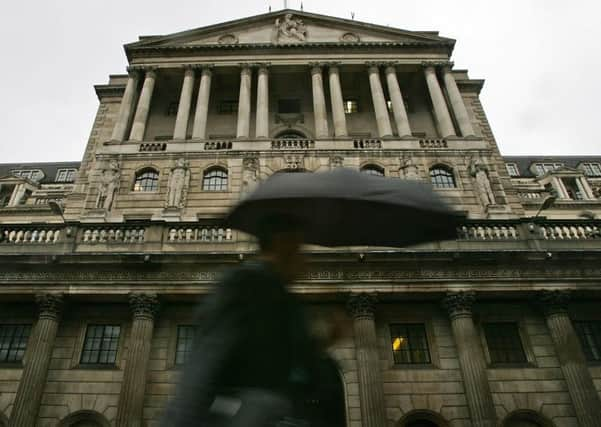Brexit could hit pay growth, warns BoE rate-setter
This article contains affiliate links. We may earn a small commission on items purchased through this article, but that does not affect our editorial judgement.


Michael Saunders, the Bank’s most recently appointed member of its monetary policy committee (MPC), said Britain’s divorce from the EU may worsen trends like flexible working and zero-hours contracts in the so-called “gig economy” that are holding back a rise in wages.
In a speech delivered at the Resolution Foundation think-tank, Saunders said models used by forecasters have failed to fully account for trends including “greater labour market flexibility and insecurity, extra labour supply, increased under-employment, broader educational attainment and changes to the tax and benefit system”.
Advertisement
Hide AdAdvertisement
Hide AdHe added: “These changes probably imply greater downward pressure on pay growth for any particular jobless rate than previously.
“It is also possible that Brexit-related uncertainties will reinforce other factors dampening pay.”
Average weekly earnings growth in the UK “remains modest” at about 2 per cent to 3 per cent year-on-year.
Saunders, a former economist at Citigroup who joined the MPC on a three-year term in August, said there is “little sign of significantly higher pay growth for 2017”, and that underlying pay growth “will probably stay comfortably below the 4% pre-crisis norm during the next few years”.
The slowdown in pay growth between 2011 and 2016 was roughly twice the average across the Organisation for Economic Co-operation & Development (OECD), and labour cost growth has slowed more than any other G7 country.
While Brexit activists have blamed immigration for lowering British wages, Saunders pointed to academic research that suggests migration inflows do not reduce overall UK pay levels, though it “may have depressed pay at the bottom end”.
Instead, “availability of foreign workers probably encourages firms to expand and invest in the UK” and “increased employment boosts consumption and housing demand”, he said.
Saunders said other factors included less-secure work through self-employment, agency jobs, zero-hours contracts and the “gig economy” which tends to pay less, while the cost of losing a job has grown thanks to tougher qualification criteria for government benefits.
Advertisement
Hide AdAdvertisement
Hide AdIt means workers are more willing to accept lower pay rises, rather than risk becoming jobless, he said.
“Reduced job security and the greater financial cost of unemployment may reduce workers’ bargaining power and create higher risk aversion – making people more likely to settle for modest or no wage growth and continued employment, rather than push for higher wage growth if that comes with risks of job losses.”
In the meantime, qualified workers appear to be settling for lower-skill jobs, with the MPC member pointing to Office for National Statistics (ONS) data showing that 47 per cent of recent graduates are in non-graduate jobs – up from 37 per cent in 2001.
While the difference in jobless rates between graduates and non-graduates has been roughly stable, “the graduate pay premium has shrunk in recent years”, Saunders added.
The squeeze on public sector pay and jobs may have also capped private sector pay by reducing competition for labour, but he said it has been hard to find a “consistent” effect over time.
However, “other factors may also be at work, for example, self-fulfilling lower expectations for wage growth”, he added.
